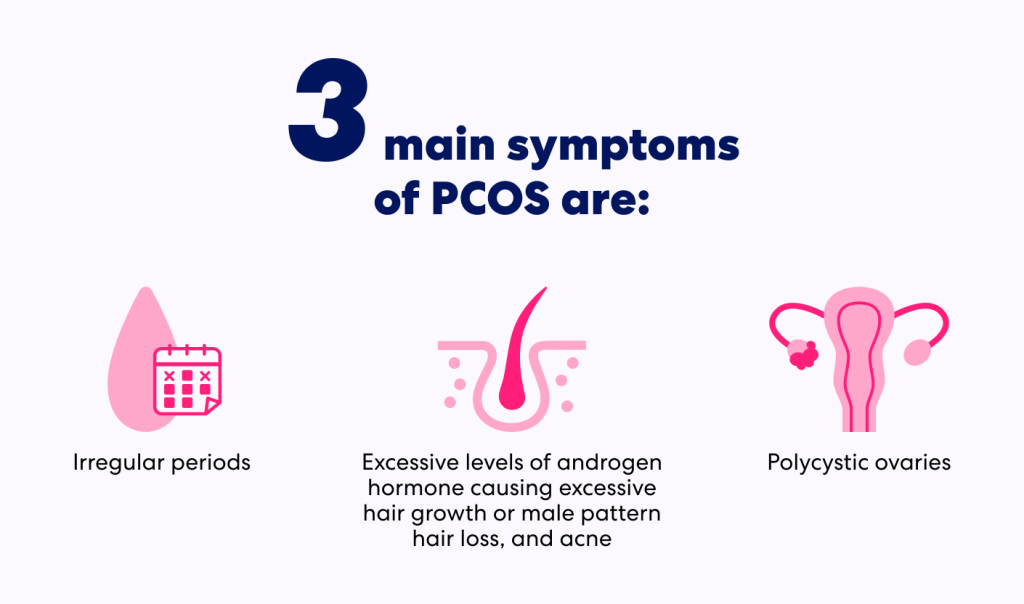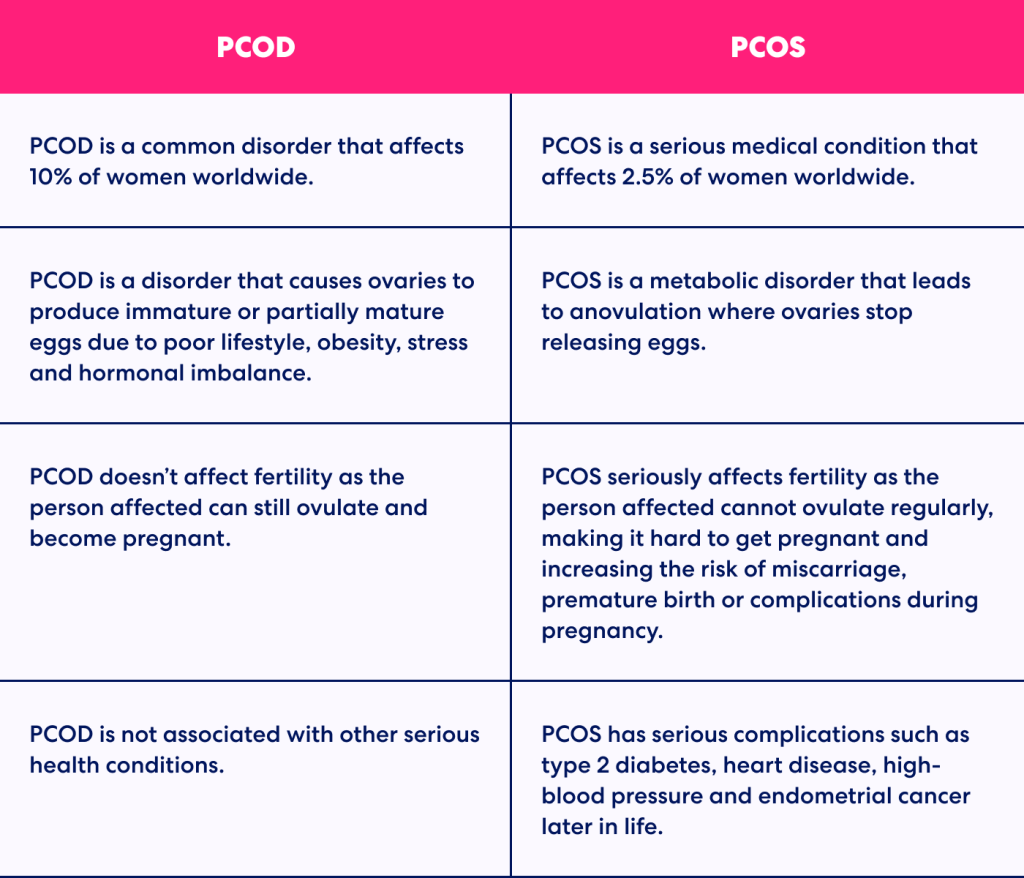Polycystic ovary syndrome (PCOS) is a common condition that affects women’s reproductive health. According to a recent study, PCOS is the most diagnosed female endocrine disorder and the pre-eminent cause of infertility. As much as 1 in 5 women in reproductive age can develop PCOS due to a vast array of causes, including genetics, a sedentary lifestyle, diet, and obesity.
PCOS will usually become apparent during your late teens or early 20s and can lead to further health problems later in life. Medical studies have observed a strong link between PCOS and type 2 diabetes, making it important to react promptly upon the first signs. If you have at least 2 symptoms on the image below, discuss with your doctor the possibility of running additional tests.

Diagnosing PCOS is not straightforward as it is not detectable by a simple blood test, biopsy, culture, or other kinds of testing. Doctors need to proceed by ruling out other causes for the same symptoms before they can make a diagnosis.
When making a diagnosis, doctors tend to rely on your family history with PCOS and other hormonal conditions. Blood tests showing changes in hormone levels and ultrasound scans showing polycystic ovaries can help in their assessment.
Difference between PCOS and PCOD
There is some confusion around the terms PCOS and PCOD as they are often used interchangeably. PCOS and PCOD refer to two distinct medical conditions that affect the ovaries and the hormonal balance in women of reproductive age. While these conditions share similar symptoms, these are key differences you should be aware of:

For both PCOD and PCOS, weight-loss, a healthy diet, and regular exercise are effective ways to manage symptoms and lower the risks of more serious health conditions.
What’s next?
If you show symptoms associated with PCOS, you’ll be referred to a gynecologist (a specialist in treating conditions of the female reproductive system). They will run additional tests, make a diagnosis and recommend treatment.
Though there is no cure for PCOS, treatments can significantly improve certain symptoms, such as weight gain, irregular menstrual cycles, acne or unwanted hair growth.
For example, the contraceptive pill may help induce regular periods. This will also reduce the long-term risk of developing cancer of the womb lining (endometrial cancer) associated with not having regular periods. The pill can also treat excessive hair growth caused by hormonal imbalances.
Ovary and Out
Once diagnosed with PCOS, Even’s medical team may recommend annual checks of your blood pressure and screening for diabetes, as well as necessary lifestyle changes. Even’s in-house dietician will assist you to build and follow a suitable diet plan.
Some symptoms associated with PCOS, such as infertility, obesity and unwanted hair growth can also cause anxiety, depression and a negative body image. Even’s team of psychologists can help and provide the mental health support you need.
Living with PCOS may require some adjustments but Even’s medical team is here to support you. Our in-house dietician and GP are available 7 days a week for clarification – they’re just a text away!



